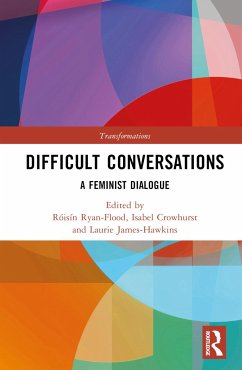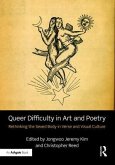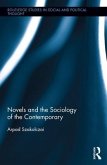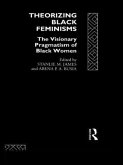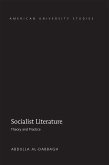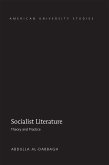Difficult Conversations
A Feminist Dialogue
Herausgeber: Ryan-Flood, Róisín; James-Hawkins, Laurie; Crowhurst, Isabel
Difficult Conversations
A Feminist Dialogue
Herausgeber: Ryan-Flood, Róisín; James-Hawkins, Laurie; Crowhurst, Isabel
- Gebundenes Buch
- Merkliste
- Auf die Merkliste
- Bewerten Bewerten
- Teilen
- Produkt teilen
- Produkterinnerung
- Produkterinnerung
This book explores 'difficult conversations' in feminist theory as an integral part of social and theoretical transformations.
Andere Kunden interessierten sich auch für
![Queer Difficulty in Art and Poetry Queer Difficulty in Art and Poetry]() Queer Difficulty in Art and Poetry201,99 €
Queer Difficulty in Art and Poetry201,99 €![Tiresian Poetics Tiresian Poetics]() Tiresian Poetics146,99 €
Tiresian Poetics146,99 €![Novels and the Sociology of the Contemporary Novels and the Sociology of the Contemporary]() Arpad SzakolczaiNovels and the Sociology of the Contemporary189,99 €
Arpad SzakolczaiNovels and the Sociology of the Contemporary189,99 €![Theorizing Black Feminisms Theorizing Black Feminisms]() M. James Stanlie (ed.)Theorizing Black Feminisms181,99 €
M. James Stanlie (ed.)Theorizing Black Feminisms181,99 €![Socialist Literature Socialist Literature]() Abdulla M. Al-DabbaghSocialist Literature90,10 €
Abdulla M. Al-DabbaghSocialist Literature90,10 €![Socialist Literature Socialist Literature]() Abdulla M. Al-DabbaghSocialist Literature44,25 €
Abdulla M. Al-DabbaghSocialist Literature44,25 €![The Routledge Companion to the Environmental Humanities The Routledge Companion to the Environmental Humanities]() The Routledge Companion to the Environmental Humanities299,99 €
The Routledge Companion to the Environmental Humanities299,99 €-
-
-
This book explores 'difficult conversations' in feminist theory as an integral part of social and theoretical transformations.
Hinweis: Dieser Artikel kann nur an eine deutsche Lieferadresse ausgeliefert werden.
Hinweis: Dieser Artikel kann nur an eine deutsche Lieferadresse ausgeliefert werden.
Produktdetails
- Produktdetails
- Verlag: Taylor & Francis
- Seitenzahl: 260
- Erscheinungstermin: 31. März 2023
- Englisch
- Abmessung: 234mm x 156mm x 18mm
- Gewicht: 567g
- ISBN-13: 9780367542603
- ISBN-10: 0367542609
- Artikelnr.: 66738357
- Herstellerkennzeichnung
- Libri GmbH
- Europaallee 1
- 36244 Bad Hersfeld
- gpsr@libri.de
- Verlag: Taylor & Francis
- Seitenzahl: 260
- Erscheinungstermin: 31. März 2023
- Englisch
- Abmessung: 234mm x 156mm x 18mm
- Gewicht: 567g
- ISBN-13: 9780367542603
- ISBN-10: 0367542609
- Artikelnr.: 66738357
- Herstellerkennzeichnung
- Libri GmbH
- Europaallee 1
- 36244 Bad Hersfeld
- gpsr@libri.de
Róisín Ryan-Flood is Professor of Sociology and Director of the Centre for Intimate and Sexual Citizenship (CISC) at the University of Essex. Her research interests include gender, sexuality, kinship, digital intimacies and feminist epistemology. She is the author of Lesbian Motherhood: Gender, Sexuality and Citizenship (2009), and co-editor of Secrecy and Silence in the Research Process (2010), Transnationalising Reproduction: Third Party Conception in a Globalised World (2018), and Queering Methodology: Lessons and Dilemmas from Lesbian Lives (2022). She is also co-editor of the journal Sexualities: Studies in Culture and Society. Isabel Crowhurst is Reader in Sociology at the University of Essex. Her work explores the construction of social norms around sexual practices and intimate lives. Her recent books include The Tenacity of Couple Norm (with Sasha Roseneil, Tone Hellesund, Ana Cristina Santos and Mariya Stoilova), and Third Sector Organizations in Sex Work and Prostitution (with Susan Dewey and Chimaraoke Izugbara). Laurie James-Hawkins is Senior Lecturer in Sociology and Deputy Director of the Centre for Intimate and Sexual Citizenship (CISC) at the University of Essex. She is a sociologist of health and gender, and her research interests include reproductive health, contraception, abortion, gender and sexuality among emerging adults. She has published widely on these topics. In recent years Dr. James-Hawkins has been studying sexual consent among university student populations.
Introduction
SECTION 1: DIFFICULT KNOWLEDGE
SECTION 1: DIFFICULT KNOWLEDGE
1. The gender wars and difficult conversations about trans: An interview
with Meg-John Barker
2. Facing uneasiness in feminist research: the case of female genital
cutting
3. Feminism and race in academia: An interview with Sandya Hewamanne
4. But you're not defending sugar, are you?
SECTION 2: GENDER, POWER AND INTIMACY
5. Difficult research effects/affects: an
intersectional-discursive-material-affective look at racialised
sexualisation in public advertising
6. Calling out and piling on: deliberation and difficult conversations in
feminist digital social space
7. Interviewing with intimacy: negotiating vulnerability and trust in
difficult conversations
8. Coexisting with uncomfortable reflexivity: feminist fieldwork abroad
during the pandemic
SECTION 3: GENDER, SEXUALITY AND EMBODIMENT
9. Sexing in the cities: sex, desire and sexual health of black township
women who love women
10. Researching sex: gender, taboos and revealing the intimate
11. Building a community of trust: participatory applied theatre workshop
techniques for difficult conversations on consent
12. Women's experiences of marital rape in Turkey: ethics, voice and
difficult conversations
SECTION 4: BOUNDED KNOWLEDGE
13. Lost for words: difficult conversations about ethics, reflexivity and
research governance
14. Gender studies, academic purity and political relevance
15. The feminist classroom in a neoliberal university
16. Focus groups and the 'insider researcher'; difficult conversations and
intersectional complexities
17. Queering the academy
SECTION 1: DIFFICULT KNOWLEDGE
SECTION 1: DIFFICULT KNOWLEDGE
1. The gender wars and difficult conversations about trans: An interview
with Meg-John Barker
2. Facing uneasiness in feminist research: the case of female genital
cutting
3. Feminism and race in academia: An interview with Sandya Hewamanne
4. But you're not defending sugar, are you?
SECTION 2: GENDER, POWER AND INTIMACY
5. Difficult research effects/affects: an
intersectional-discursive-material-affective look at racialised
sexualisation in public advertising
6. Calling out and piling on: deliberation and difficult conversations in
feminist digital social space
7. Interviewing with intimacy: negotiating vulnerability and trust in
difficult conversations
8. Coexisting with uncomfortable reflexivity: feminist fieldwork abroad
during the pandemic
SECTION 3: GENDER, SEXUALITY AND EMBODIMENT
9. Sexing in the cities: sex, desire and sexual health of black township
women who love women
10. Researching sex: gender, taboos and revealing the intimate
11. Building a community of trust: participatory applied theatre workshop
techniques for difficult conversations on consent
12. Women's experiences of marital rape in Turkey: ethics, voice and
difficult conversations
SECTION 4: BOUNDED KNOWLEDGE
13. Lost for words: difficult conversations about ethics, reflexivity and
research governance
14. Gender studies, academic purity and political relevance
15. The feminist classroom in a neoliberal university
16. Focus groups and the 'insider researcher'; difficult conversations and
intersectional complexities
17. Queering the academy
Introduction
SECTION 1: DIFFICULT KNOWLEDGE
SECTION 1: DIFFICULT KNOWLEDGE
1. The gender wars and difficult conversations about trans: An interview
with Meg-John Barker
2. Facing uneasiness in feminist research: the case of female genital
cutting
3. Feminism and race in academia: An interview with Sandya Hewamanne
4. But you're not defending sugar, are you?
SECTION 2: GENDER, POWER AND INTIMACY
5. Difficult research effects/affects: an
intersectional-discursive-material-affective look at racialised
sexualisation in public advertising
6. Calling out and piling on: deliberation and difficult conversations in
feminist digital social space
7. Interviewing with intimacy: negotiating vulnerability and trust in
difficult conversations
8. Coexisting with uncomfortable reflexivity: feminist fieldwork abroad
during the pandemic
SECTION 3: GENDER, SEXUALITY AND EMBODIMENT
9. Sexing in the cities: sex, desire and sexual health of black township
women who love women
10. Researching sex: gender, taboos and revealing the intimate
11. Building a community of trust: participatory applied theatre workshop
techniques for difficult conversations on consent
12. Women's experiences of marital rape in Turkey: ethics, voice and
difficult conversations
SECTION 4: BOUNDED KNOWLEDGE
13. Lost for words: difficult conversations about ethics, reflexivity and
research governance
14. Gender studies, academic purity and political relevance
15. The feminist classroom in a neoliberal university
16. Focus groups and the 'insider researcher'; difficult conversations and
intersectional complexities
17. Queering the academy
SECTION 1: DIFFICULT KNOWLEDGE
SECTION 1: DIFFICULT KNOWLEDGE
1. The gender wars and difficult conversations about trans: An interview
with Meg-John Barker
2. Facing uneasiness in feminist research: the case of female genital
cutting
3. Feminism and race in academia: An interview with Sandya Hewamanne
4. But you're not defending sugar, are you?
SECTION 2: GENDER, POWER AND INTIMACY
5. Difficult research effects/affects: an
intersectional-discursive-material-affective look at racialised
sexualisation in public advertising
6. Calling out and piling on: deliberation and difficult conversations in
feminist digital social space
7. Interviewing with intimacy: negotiating vulnerability and trust in
difficult conversations
8. Coexisting with uncomfortable reflexivity: feminist fieldwork abroad
during the pandemic
SECTION 3: GENDER, SEXUALITY AND EMBODIMENT
9. Sexing in the cities: sex, desire and sexual health of black township
women who love women
10. Researching sex: gender, taboos and revealing the intimate
11. Building a community of trust: participatory applied theatre workshop
techniques for difficult conversations on consent
12. Women's experiences of marital rape in Turkey: ethics, voice and
difficult conversations
SECTION 4: BOUNDED KNOWLEDGE
13. Lost for words: difficult conversations about ethics, reflexivity and
research governance
14. Gender studies, academic purity and political relevance
15. The feminist classroom in a neoliberal university
16. Focus groups and the 'insider researcher'; difficult conversations and
intersectional complexities
17. Queering the academy

